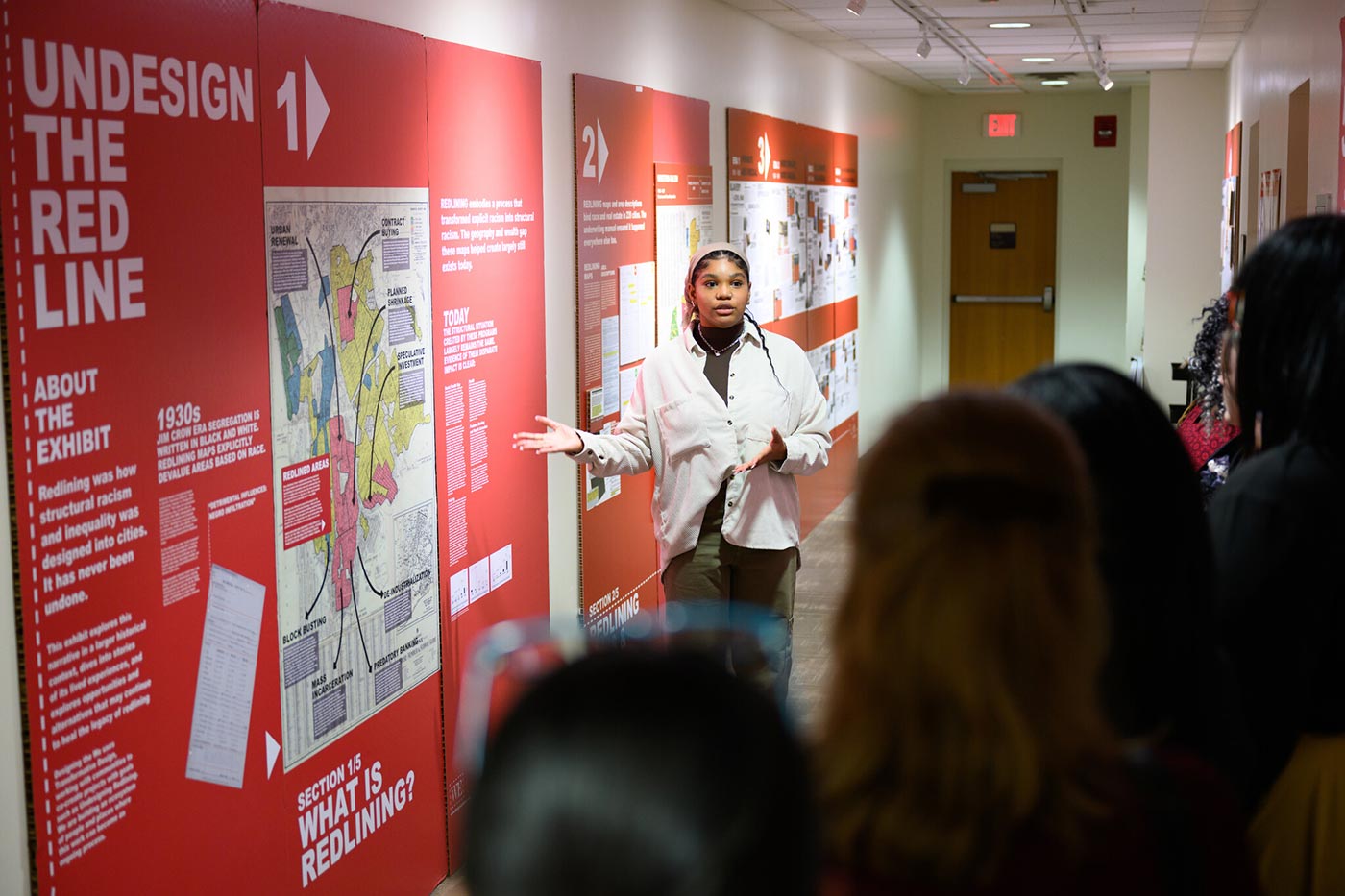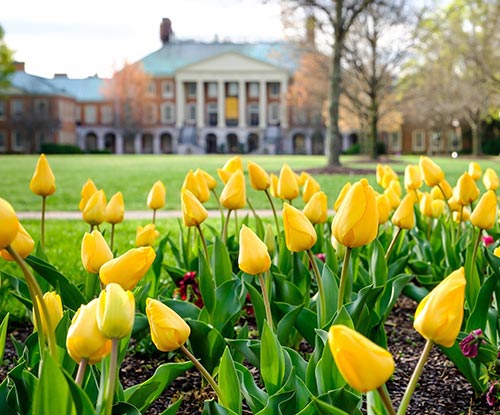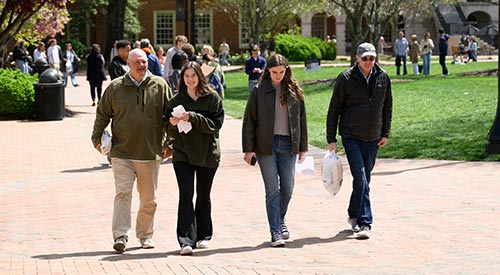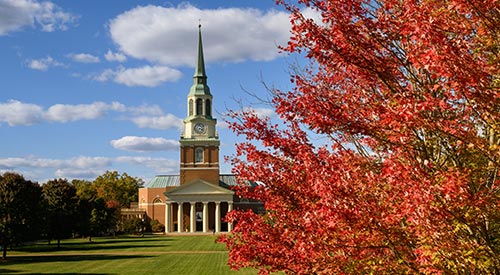Sociology

Sociology Degree
Bachelor of Arts, Minor
Program Type:
Major, Minor
Career Path:
Social Sciences
Program Site:
College or School:
Why study Sociology?
Sociology involves a scientific study of social groupings, institutions, occupations, education, personal experience and several other areas. Binding every item on that list is a fearless commitment to responsible scholarship.
- In 2008, Wake Forest surprised many of its fellow research institutions by becoming the first Top-30 National University to go test-optional in admissions. The guidance for this decision came in large part from the work of Dr. Joseph Soares, whose research indicates performance in high school – not on standardized tests – best predicts college achievement.
- The Sociology major offers concentrations in crime and criminal justice; business and society; and health, medicine and social welfare.
The Sociology degree is offered as a Bachelor of Arts (B.A.) and a minor.
What classes would I take?
Our model and curriculum educate the whole person and often help students discover interests they had never previously discovered. Students generally take 100-200 level courses during their first year of college, while registering for higher level courses as upperclassmen.
Sample courses* that you may take as an Sociology student include:
100-200 level
- Principles of Sociology
- Social Problems
- Social Deviance
- Sociological Theory
- Research Methods in Sociology
300 level
- Sociology of Religion
- Business and Society
- Sexuality and Society
- Sociology of Sports and Art Worlds
- Sociology of Emotion
* Course availability and offerings can change at any time. Refer to the Academic Bulletin to view all major requirements.
What kind of experience will I gain?
The Sociology program at Wake Forest is particularly strong in the subject areas of stratification, race, gender, gerontology, economic organization, education, religion, culture, research methods and theory.
Students in this program will develop the following skills:
- Knowledge of social facts
- Understanding of the logic of social research
- Appreciation of social science as a collective and public minded vocation
- Knowledge of statistics including regression analysis
- Familiarity with ethnographic and historical research
- Familiarity with organizational and institutional dynamics
- Knowledge of racial, gender, and class disparities
- Knowledge of the history of social theory
- Analytic and critical cognitive skills
- Extensive verbal and written communication skills
- Capacity to conduct and report original research
Are there extracurricular activities?
Joining a club or organization is a great way to get involved and do more with your major. Our Sociology students participate in the following programs:
- Certified Peer Education Program
- Hydrating Humanitate
- Campus Life Advisory Council
- Residence Life and Housing
- Lam Museum of Anthropology
What kind of job can I get?
Careers that often interest Sociology majors, and fields our graduates work in, include:
- Adoption Agency Case Worker
- Attorney
- Case Manager
- Clinical Assistant
- Consultant
- Counselor
- Criminologist
- Employment Recruiter
- Hospice Coordinator
- Human Resources Specialist
- Lobbyist
- Mental Health Assistant
- Peace Corps Volunteer
- Physician
- Prevention Educator
- Probation Officer
- Psychologist
- Public Relations Specialist
- Recreation Specialist
- Residential Counselor
- Social Worker
- Volunteer Coordinator
Among the distinguished alumni of Sociology at Wake Forest: Brig. Gen. (Ret.) Pat Foote (’52), the first woman officer to command an Army brigade in Europe.
Other Sociology graduates include banking executives; epidemiologists and other medical doctors; police commanders; attorneys; and leaders in several other sectors.
Related Programs

Majors & Minors
Choose from more than 50 majors and over 60 minors to find your perfect fit.

Life at Wake
Take a moment to explore all the student experiences that make Wake Forest unique.

Virtual Tour
Can’t make it for a visit? No problem! Let us show you around campus virtually.

Keep in Touch
Let us know you’re interested in Wake Forest and we’ll do the rest.

Visit Campus
You truly can’t appreciate the beauty of our campus until you experience it for yourself.

Apply
Want to be considered for our next class of Demon Deacons? Here’s how to get started.
